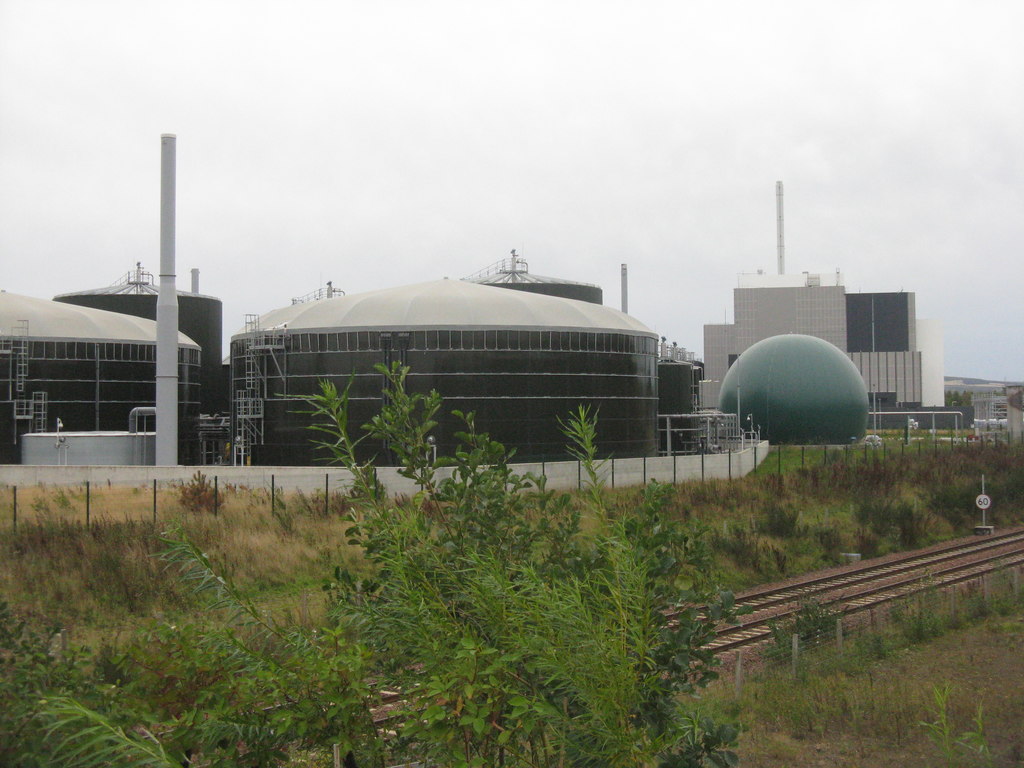The City of Edinburgh Council has been accused of “creative carbon accounting” by “ignoring” the climate pollution caused by a big waste incinerator outside the capital.
Friends of the Earth Scotland attacked the council for “claiming environmental benefits where they do not exist”. Other campaigners criticised the council for “greenwash” and “misreporting”.
Edinburgh council, however, dismissed the allegations as “hugely misleading and inaccurate”. It said that it had reported its emissions as the Scottish Government required it to do, and as other councils do.
In 2020 the council announced that it had met its climate target a year ahead of schedule, thanks to “drastically reducing the amount of waste going to landfill”. It claimed that council carbon emissions had been cut by 60 per cent since 2005-06.
These reductions were attributed to the opening of the new Millerhill recycling and energy recovery centre — which includes a waste incinerator — in Midlothian in September 2019. But environmentalists say that the council has not included all the carbon emissions from the incinerator.
Under current guidelines for councils, Edinburgh is only required to report the emissions caused by transporting waste to Millerhill. Because the incinerator is outside the Edinburgh council boundary, emissions from the plant itself do not have to be reported.
By burning waste, incinerators contribute to the climate crisis by releasing greenhouse gases into the atmosphere. A recent study by the Scottish Government agency, Zero Waste Scotland, suggested that burning waste produces only 27 per cent less carbon emissions than dumping it as landfill.
Edinburgh council was also criticised for having so far failed to use the heat from the Millerhill plant to warm local buildings as promised. Planning permission permits for a district heating scheme were submitted in October 2021.
Friends of the Earth Scotland pointed out that the proportion of waste incinerated by Edinburgh council in 2019 was 57 per cent, the second highest in Scotland. The amount of waste recycled by the council had dropped from 45 per cent in 2016 to 39 per cent in 2019, it said.
A new report from the environmental group has accused the council of “creative carbon accounting” and of “shirking its emissions responsibility”. The council had “failed to keep promises about the energy that would be generated from the plant”, it said, and was “claiming environmental benefits where they do not exist”.
Kim Pratt, circular economy campaigner at Friends of the Earth Scotland, said: “Edinburgh council has found a way to remove a large proportion of its carbon emissions from its records, but they have not actually disappeared or stopped contributing to the climate crisis.
“The council’s 25-year plan to burn the city’s waste does not value people, the environment or materials. It makes national net zero targets and ambitions to become a circular economy more difficult to reach.”
Pratt also argued that promises to use the heat from Millerhill were being acted on “too late” and it would be “many years” before it started happening. “We’ve seen a drastic increase in incineration in Scotland, and this case demonstrates why it is such a bad way of dealing with waste,” she added.
The council’s 25-year plan to burn the city’s waste does not value people, the environment or materials.
Kim Pratt, Friends of the Earth Scotland
“A permanent ban on new incineration and an exit strategy for existing plants is needed to end this polluting practice in Scotland.”
Euan Thomson, a resident who lives near Millerhill, agreed. He accused the council of “misreporting its achievements to meet net-zero targets”.
He told The Ferret: “The recycling rate in Edinburgh is poor and way off target. The council needs to engage with the public to find ways to improve these rates.”
Shlomo Dowen from the campaign group, United Kingdom Without Incineration Network, said: “The climate cannot be fooled by greenwash. Building new incinerators is a backwards step that locks in carbon generation for decades to come.
“Most of what is currently in the residual waste stream could be reduced, reused and recycled, and so it is crucial that Edinburgh supports the top tiers of the waste hierarchy rather than outdated and unwanted waste disposal capacity.”
The City of Edinburgh Council, however, hit back, describing the accusations as “hugely misleading and inaccurate”. It argued that it was reporting its emissions as it was meant to be doing.
The emissions decrease that we have reported reflects the UK Government emission factors which we are required to use by Scottish Government for the reporting of our greenhouse gas emissions.
Councillor Lesley Macinnes, City of Edinburgh Council
“The emissions decrease that we have reported reflects the UK Government emission factors which we are required to use by Scottish Government for the reporting of our greenhouse gas emissions,” said the council’s environment committee convener, SNP councillor Lesley Macinnes.
“As a council we do this annually through the public bodies duties report – along with every other local authority and public body in Scotland.”
She maintained that emissions from Millerhill were reported by the council even though it was outside the city boundary. “Reporting these emissions is not mandatory but we choose to do so to be completely transparent anyway,” she added.
In November Edinburgh council was the only city in Scotland to be awarded the top rating for climate action by a major international charity. The award recognised Edinburgh’s city-wide emissions inventory and its 2030 Climate Strategy.
Macinnes said the city was very proud to have been given this recognition. “Decreasing the percentage of potentially recyclable waste sent to incineration is a priority for us but the Millerhill facility offers significant environmental benefits when compared to the alternative of landfill,” she said.
“We strongly encourage all residents to recycle waste where possible and we’re currently running a campaign encouraging residents to have a less wasteful Christmas and help reduce their impact on the environment.”














